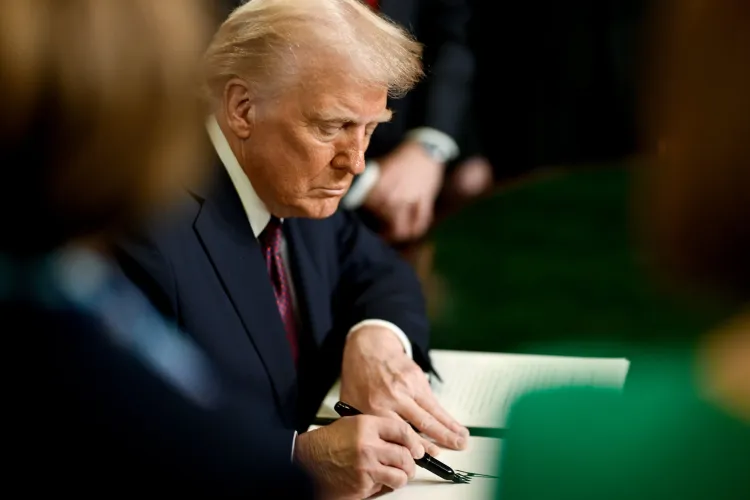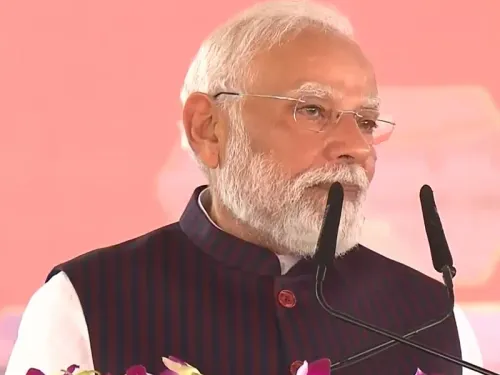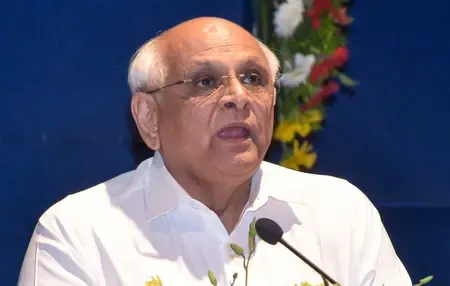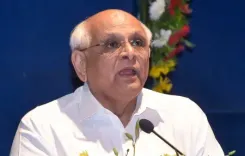Why Are Shares of Indian Textile Firms Soaring After Trump's 35% Tariff on Bangladesh?

Synopsis
Key Takeaways
- The 35% tariff on Bangladesh could boost Indian textile exports.
- Shares of Indian firms like Gokaldas Exports surged by over 7%.
- Trade dynamics in the textile sector will likely change.
- Trump's tariff aims to address the trade deficit with Bangladesh.
- Potential adjustments to tariffs may happen based on US-Bangladesh relations.
New Delhi, July 8 (NationPress) Shares of Indian textile companies experienced a significant spike in early trading on Tuesday following the announcement by US President Donald Trump imposing a 35 percent tariff on products imported from Bangladesh.
Notable textile firms including Trident, Welspun, Gokaldas Exports, KPR Mill, Vardhman Textiles, and Arvind Ltd. saw their stock prices rise sharply in the morning session.
Gokaldas Exports shares surged more than 7 percent, while Vardhman Textiles experienced a 7.4 percent increase, and Welspun Living's stock rose by 2 percent.
In a correspondence directed to Bangladesh's Chief Advisor Muhammad Yunus, Trump stated that beginning August 1, 2025, the United States will implement a 35 percent tariff on all Bangladeshi goods entering the country, distinct from sector-specific tariffs.
Trump emphasized that the 35 percent tariff is significantly lower than needed to address the trade deficit imbalance with Bangladesh. He also warned that goods rerouted to bypass a higher tariff will incur that elevated rate.
The President cautioned that if Bangladesh were to increase its tariffs, any increment would be added to the existing 35 percent tariff.
“These tariffs are essential to rectify years of Bangladesh's tariff and non-tariff measures, which have led to unsustainable trade deficits against the United States,” Trump explained. He added that this deficit poses a considerable threat to both the economy and national security.
Trump indicated that should Bangladesh choose to open its markets and eliminate trade barriers, there might be a possibility for adjustments to the tariff structure, which could change based on the state of US-Bangladesh relations.
In terms of market share within the US ready-made garment sector, Vietnam holds a 19 percent share while Bangladesh claims 9 percent.
In addition to Bangladesh, Trump has imposed 25 percent tariffs on imports from Japan and South Korea, with twelve other nations receiving notifications about their respective tariffs. He also mentioned that the US is “very close to finalizing a deal with India.”









